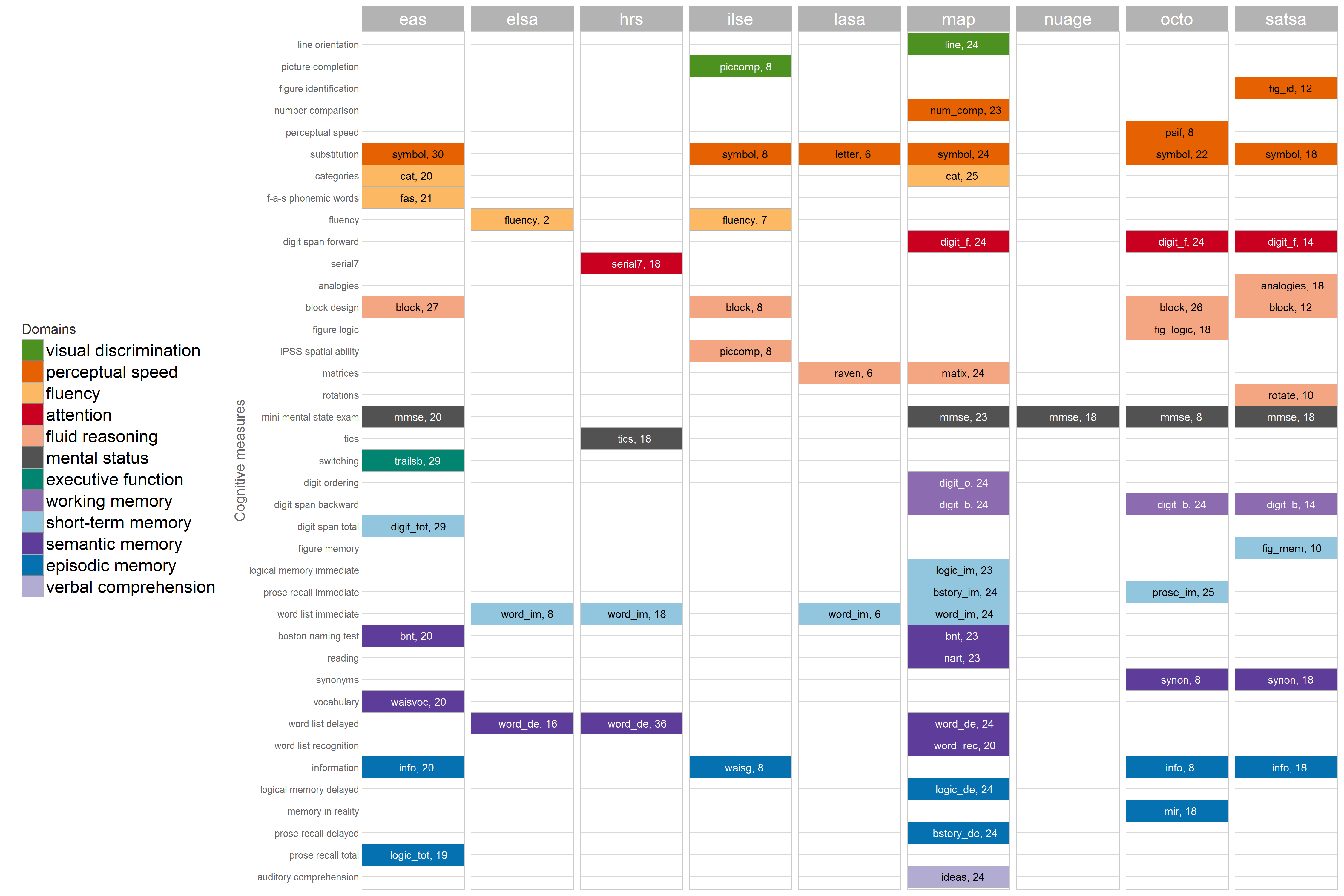IALSA is funded through an NIH/NIA Program Project Grant (P01AG043362; 2013-2018) to Oregon Health & Science University (Program Directors: Scott Hofer, Andrea Piccinin, Jeffrey Kaye, and Diana Kuh) and previously funded by NIH/NIA (R01AG026453; 2007-2013) and CIHR (103284; 2010-2013).
Concurrent decline of body and mind
IALSA-2017-Portland workshop performs a coordinated analysis with replication (CAwR) across 10 longitudinal studies investigating the decline in physical and cognitive functioning during later adulthood using bivariate growth curve models.
- Emily C Duggan, Andrea M Piccinin, Sean Clouston, Andriy V Koval, Annie Robitaille, Andrea R Zammit, Chenkai Wu, Cassandra L Brown, Lewina O Lee, Deborah Finkel, William H Beasley, Jeffrey Kaye, Graciela Muniz-Terrera, Mindy Katz, Richard B Lipton, Dorly Deeg, David A Bennett, Marcus Praetorius Björk, Boo Johansson, Avron Spiro, Jennifer Weuve, Scott M Hofer; A Multi-Study Coordinated Meta-Analysis of Pulmonary Function and Cognition in Aging, The Journals of Gerontology: Series A, glz057, https://doi.org/10.1093/gerona/glz057 ( figures and supplemental materials)
Participating studies
1 Veiw study descriptives after the link
Model form
Any model in the collective can be specified by a form nested within the following general specification:

with covariance structure given as

For details see model specification.
Measures
The following information display shows the available models submitted to the collective, grouping them by cognitive domains (color), items tapping those domains (row labels), and specific tests (cell labels) and indicating the total number of models using this item (number after cell label).
Background
The current repository analyzes the results of the IALSA Analysis Workshop (pdf overview) that was held in Portland, Oregon from Monday February 23rd (8:30am) to Wednesday February 25th (12:30pm), 2015.
The primary aim of the workshop was to examine associations between changes in physical functioning (i.e., grip strength, pulmonary function, chair stands, walking speed) and cognitive functioning (i.e., measures of speed, memory, reasoning, executive functioning) in multiple-study comparative framework. Bivariate growth processes were estimated to evaluate dynamic associations in change and variation within and across these domains and in relation to sample and individual differences in age, lifestyle, and health outcomes. The results from these analyses will extend recent systematic reviews and meta-analyses (e.g., Clouston et al., 2012, Epidemiological Reviews and will be submitted for publication as a set of independent brief reports, capped by a literature review/overview of analysis and completed with a research synthesis summary.
Publications and Presentations
- Big Data, Big Analyses: CAR method explained, Canadian Psychological Association, June 16, 2016.
- A Collaborative Modeling Framework for Multi-Study Coordinated Analyses, Wellcome Trust Conference, July 22, 2015.
Contacts
Methodology
Data Science

